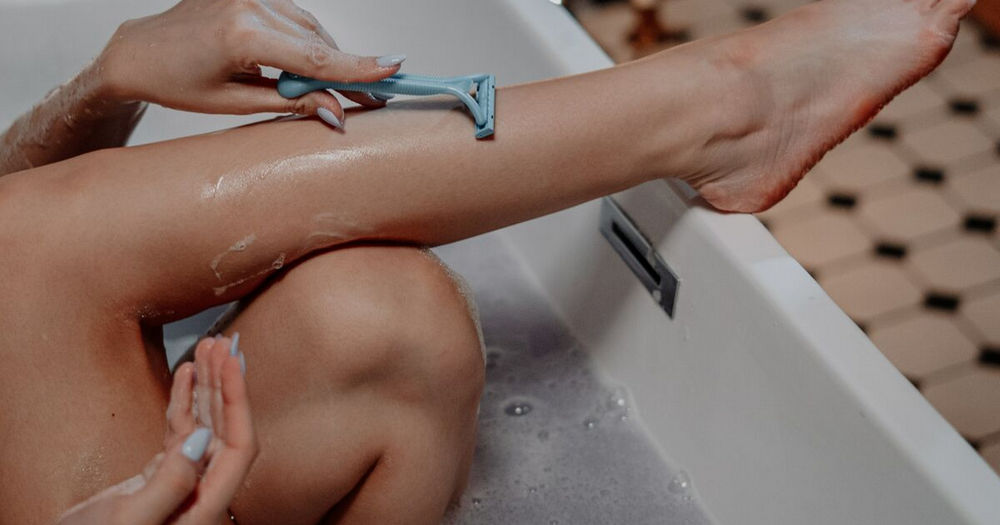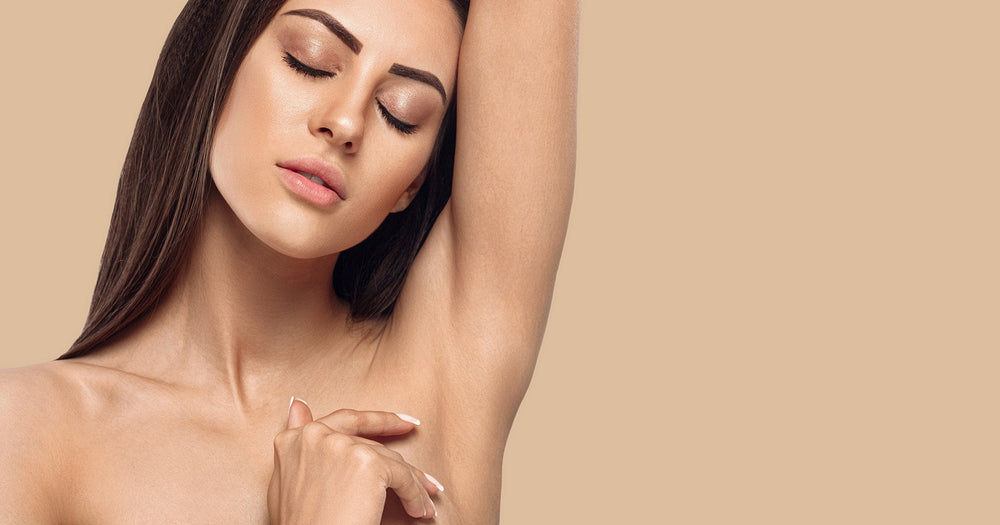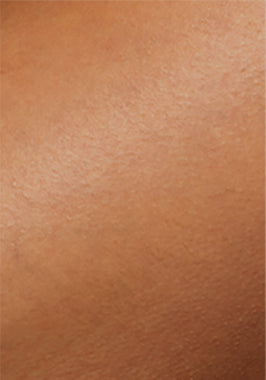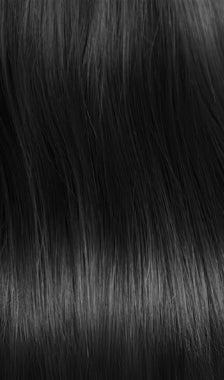Having rashes on your skin can be very annoying, especially in areas that are exposed to the scrutiny of the public. It's even more confusing and scary when you can't tell if it's razor bumps or herpes. To make matters worse, when you try to search online, Google lists horrific diseases whose symptoms match yours, leaving you wondering if your health is gradually deteriorating or if it's just your skin reacting to your last grooming routine.
The possible causes of these rashes - razor bumps and herpes - have similar symptoms. Diagnosing them requires a careful examination of your symptoms and sometimes a lab test so you don't panic about pimples that go away on their own or ignore a health condition that needs urgent medical attention.
This article carefully examines the causes, symptoms, treatment, prevention and differences between razor bumps and herpes so that you can recognize the type of skin abnormality you are experiencing and properly treat it.

- Part 1: What are razor bumps?
- Part 2: Herpes
- Part 3: Razor bumps vs. herpes: diagnoses
- Part 4: Razor bumps vs. herpes: comparison table
- Part 5: Conclusion
What are razor bumps?
Razor bumps, which have the scientific name pseudofolliculitis barbae , are small bumps that appear on the skin after a hair removal procedure such as shaving. The bumps are caused by ingrown hairs (frizzy hair that is partially cut off and curls into the skin). They cause skin irritation that leads to bumps because the hair grows into the skin rather than outward.
You are likely to find razor bumps on the areas of your body that you shave, such as your face, legs, arms, armpits, groin, and other areas. Men are more prone to razor bumps because they have to constantly shave to maintain a neat appearance.
Symptoms of razor bumps
- Small, firm and round bumps (papules)
- Pustules
- itch
- Darkening or discoloration of the affected area
- Pain and hypersensitivity
Treatment of razor bumps
Razor bumps can be successfully treated at home using one of the following methods:
-
peeling
Exfoliating to remove the layer of dead skin cells clogging your pores should be the first step. While you may not feel comfortable exfoliating an area that already looks inflamed, it will help. You don't need to be too harsh on your skin, just gently exfoliate.
You can use a store-bought scrub that you've previously tested and approved, or you can make your own at home using olive oil and sugar. Gently rub the scrub onto the affected area for at least five minutes and rinse with warm water.

-
Aloe Vera
Aloe vera gel has many health benefits for the skin. It is anti-inflammatory, soothing, antibacterial and moisturizing. If you apply it to the areas affected by razor burn, it will help stop the inflammation and itching.
To make this home remedy, take aloe vera gel from the freshly cut plant. Apply it to the affected area and rinse after 30 minutes. For maximum results, repeat this process at least twice a day.

-
Tea tree oil
With the antibacterial and anti-inflammatory properties of tea tree oil, you can successfully treat razor bumps at home. It opens the pores of your skin, treats ingrown hairs and reduces redness and inflammation.
To prepare the tea tree oil for this purpose, take a bowl of warm water and add 15 drops of the tea tree oil into it. Soak a towel in the bowl and place it on the affected area of the skin. Leave the soft towel on for at least 30 minutes before removing it and repeat the process at least twice a day until the razor bumps disappear.
Other home remedies you can try are witch hazel and coconut oil.
Medical treatments: Medical treatments for razor bumps include steroid creams, antibacterial lotions, and warm compresses. In severe cases, it may be necessary to remove the ingrown hair.

How to prevent razor bumps
- Don’t shave too often or too quickly
- Only shave when the area is wet
- Change your razor blades as often as necessary
- Only use shaving creams that are compatible with your skin
- Move your razor bar in the direction of hair growth.
- Use an intense pulsed light (IPL) hair removal device instead of a razor for hair removal
Herpes
Herpes is a sexually transmitted disease caused by the herpes simplex virus (HSV). It is characterized by bumps, blisters, or sores on the genitals, rectal area, or around the mouth. There are two types of herpes: HSV-1 or herpes simplex virus type 1 and HSV-2 or herpes simplex virus type 2.
HSV-1 is the type that primarily affects the mouth. However, it can also occur on the genitals, especially in people who have oral sex. The infection is more common in the cheek area. HSV-2 is the type that affects the genitals and can be transmitted from person to person through sexual intercourse.
As with so many viral infections, there is no permanent treatment for herpes, but you can manage it. The time you are plagued by symptoms is called the outbreak period, and you may have multiple outbreaks throughout your life. Medical care helps prevent herpes outbreaks from occurring while you continue to live with the virus.
On the positive side, subsequent outbreaks of symptoms are usually milder than the first.
Symptoms of herpes
During an outbreak, in addition to the herpes blisters and bumps, infected people may experience:
- Headache
- Eye infection
- Swollen and painful lymph nodes
- Painful urination
- Fever
Treatment of herpes
At this point, we are talking about the home remedy for herpes, but we are dealing with a lifelong viral infection here. No medical drug can cure herpes, so there may not be much you can do at home to treat it. But the following home remedies have been proven to relieve the symptoms:
- Non-prescription painkillers such as ibuprofen
- Applying special lotions to the genitals before urinating
- Apply aloe or Vaseline to the affected areas
- Use warm salt water for bathing
- Avoid sex until symptoms disappear
- Avoid further irritation by wearing loose-fitting clothing
Doctors may also prescribe antiviral medications if you have a herpes outbreak. If symptoms keep coming back, doctors may have to put you on antiviral medications for at least six months. There are also some anti-herpes treatments in the form of creams that can help relieve the pain, tingling and itching.

How to prevent herpes
You can't get rid of herpes from your body permanently, but you can prevent it from entering your body by doing the following:
- Avoid kissing people with sores on their mouths
- Do not have sexual intercourse with people who have wounds on their genitals
- Avoid unprotected sex
- You and your partner should get tested
Razor bumps vs. herpes: diagnoses
Razor bumps can be distinguished from herpes by their characteristic features, such as appearance. But appearance can sometimes be deceiving, even to a health professional. Since a razor bump will disappear after a few days, bumps that persist after a few days should be examined by a doctor.
The examination includes complete tests for STDs and other tests to look for cysts, ingrown hairs and blocked oil glands.
Razor bumps vs. herpes: comparison table
|
Characteristics |
Razor bumps |
Herpes |
|
Look |
The pimples are like reddish-looking rashes on the skin. |
The bumps look like clusters of small bumps, sores or blisters. When they rupture, an ulcer with brown crusts remains on the skin. |
|
frequency |
Razor bumps can occur as often as some people shave, while for others they occur very rarely. It only happens when ingrown hairs are present. |
Depending on the strength of the person's immune system, an infected person may have two or more outbreaks per year. The occurrence of HSV-1 is less common than that of HSV-2. |
|
Treatment |
You can treat razor bumps permanently at home with home remedies and other medications. You can also wait for them to go away on their own after a few days. |
There is no permanent cure for herpes. But you can try to suppress it by taking the recommended medications. |
|
Location |
Anywhere you find hair on your body, you can find razor bumps after shaving. This includes the genitals, legs, armpits, etc. |
You can find it in the mouth region, genitals and rectal area. |
|
Type of transmission |
Razor bumps are not contagious. |
It can be transmitted through sexual activity. |
Conclusion
Razor bumps and herpes are diseases that you can prevent with the right information and tools. If you are constantly battling razor bumps and would like to say goodbye to them forever, you should definitely get the Ulike IPL device . This advanced hair removal device not only gives you months of hair relief, but also does not cause pimples or ingrown hairs. Herpes, on the other hand, can be prevented by not having unprotected sex and avoiding bodily fluids such as saliva from infected people.




























